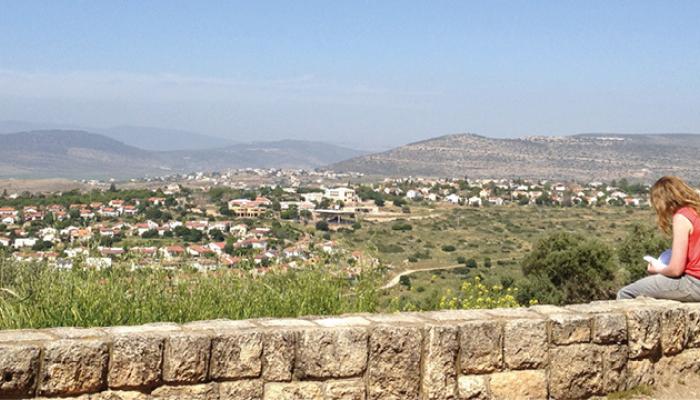
3.5 Pse lutja mund të jetë e vështirë dhe e mërzitshme?
Njerëzit shpeshherë hasin vështirësi në lutje [> 3.6], sidomos kur gjërat duken se shkojnë mirë . Kur lutemi ne kemi nevojë për qëndrueshmëri, besnikëri dhe këmbëngulje.
Por mos u dëshpëro: mund të jesh i sigurt që Zoti është gjithmonë aty. Ai gjithmonë na ndihmon kur kemi nevojë, ndonjëherë edhe në një mënyrë të cilën ne nuk e presim. Zoti ju shtrin dorën dhe ju mund të mbështeteni tek ai (Mt. 14:31) Mt. 14:31:Jezusi përnjëherë shtriu dorën, e kapi dhe i tha:“Fepakët! Përse dyshove!”. A guxoni t’ja mbani dorën?
Pse lutja është një betejë?
Lutja është një dhuratë e hirit, por supozon gjithmonë një përgjigje të vendosur nga ana jonë, sepse ai që lutet lufton kundër vetvetes, mjedisit dhe sidomos kundër Tunduesit, i cili bën gjithçka për ta larguar atë nga lutja. Beteja e lutjes është e pandashme nga përparimi i jetës shpirtërore. Lutemi ashtu siç jetojmë, sepse jetojmë ashtu siç lutemi. [KKKP 572]
A ka kundërshtime për lutjen?
Përveç konceptimeve të gabueshme, shumë njerëz mendojnë se nuk kanë kohë për t’u lutur ose që nuk është e nevojshme të luten. Ata që luten mund të shkurajohen përballë vështirësive dhe mossukseseve në dukje. Për t’i mposhtur këto pengesa është e nevojshme përvujtëria, besimi dhe qëndrueshmëria. [KKKP 573]
Why is prayer sometimes a struggle?
The spiritual masters of all times have described growth in faith and in love for God as a spiritual, lifeand-death combat. The battlefield is man’s interior life. The Christian’s weapon is prayer. We can allow ourselves be defeated by our selfishness and lose ourselves over worthless things — or we can win God.
Often someone who wants to pray must first conquer his lack of will power. Even the Desert Fathers were acquainted with spiritual sluggishness (“acedia”). Reluctance to seek God is a big problem in the spiritual life. The spirit of the times sees no point in praying, and our full calendars leave no room for it. Then there is the battle against the tempter, who will try anything to keep a person from devoting himself to God. If God did not want us to find our way to him in prayer, we would not win the battle. [Youcat 505]
Is prayer not just a sort of conversation with yourself?
The distinctive feature about prayer is precisely the fact that one goes from Me to You, from selfcenteredness to radical openness. Someone who is really praying can experience the fact that God speaks—and that often he does not speak as we expect and would like.
Those who are experienced in prayer report that a person very often comes out of a prayer session different from the way he went in. Sometimes expectations are met: you are sad and find consolation; you lack confidence and receive new strength. It can also happen, though, that you would like to forget pressures but are made even more uneasy; that you would like to be left in peace and instead receive an assignment. A real encounter with God—the kind that occurs again and again in prayer—can shatter our preconceptions about both God and prayer. [Youcat 506]
What happens if you find that prayer does not help?
Prayer does not seek superficial success but rather the will of God and intimacy with him. God’s apparent silence is itself an invitation to take a step farther—in total devotion, boundless faith, endless expectation. Anyone who prays must allow God the complete freedom to speak whenever he wants,to grant whatever he wants, and to give himself however he wants.
Often we say: I have prayed, but it did not help at all. Maybe we are not praying intensely enough. The saintly Curé of Ars once asked a brother priest who was complaining about his lack of success, “You have prayed, you have sighed … but have you fasted, too? Have you kept vigil?” It could also be that we are asking God for the wrong things. St. Teresa of Avila once said, “Do not pray for lighter burdens; pray for a stronger back.” [Youcat 507]
What happens if you do not feel anything when you pray or even experience reluctance to pray?
Distractions during prayer, the feeling of interior emptiness and dryness, indeed, even an aversion to prayer are experienced by everyone who prays. Then to persevere faithfully is itself already a prayer.
Even St. Thérèse of Lisieux for a long time could not sense God’s love at all. Shortly before her death she was visited one night by her sister Céline. She noticed that Thérèse’s hands were clasped together. “What are you doing? You should try to sleep”, Céline said.“I cannot. I am suffering too much. But I am praying”, Thérèse replied. “And what do you say to Jesus?” “I do not say anything to him. I love him.” [Youcat 508]
As çështjet familjare dhe as gjërat e të tjera nuk duhet të qëndrojnë jashtë kontekstit të jetës shpirtërore. Në Krishtin, çdo veprimtari njerëzore merr një kuptim më të thellë dhe bëhet dëshmi natyrale. I rrënjosur në frymën e lutjes, shpirti më pas i hapet Zotit të pafund dhe të amshuar . Kërkon t'i shërbejë këtij Zoti dhe të tërheqë prej tij forcën dhe dritën që e bëjnë veprimtarinë e tij të krishterë. Falë besimit, ne njohim në jetën tonë veprimet e planit të Hyjit për dashurinë, zbulojmë kujdesin e vazhdueshëm të Atit që është në qiell. [Papa Gjon Pali II, Homelia në Gorzov, 2 qershor 1997]





